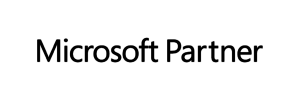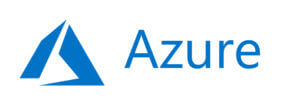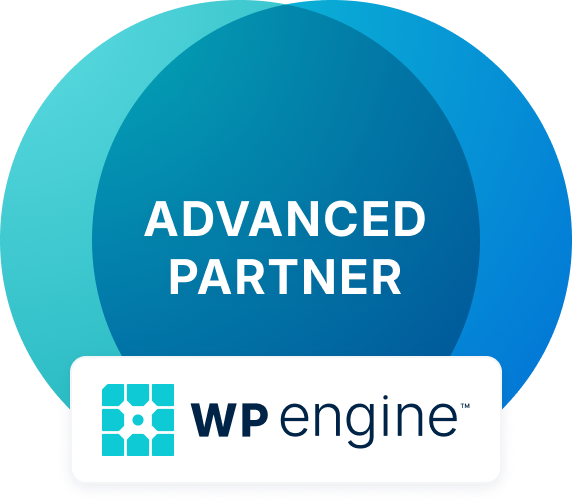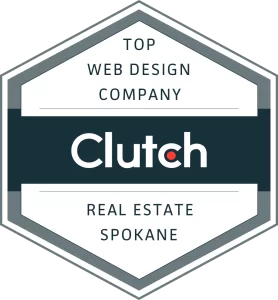Alyssa Mullins 0:00
Hi everyone. I’m Alyssa!
Adam Jones 0:02
I’m Adam.
Alyssa Mullins 0:03
And welcome to Your Weekly Social!
Adam Jones 0:09
Alright, what are we talking about today?
Alyssa Mullins 0:11
Talking about Facebook again
Adam Jones 0:13
Again?
Alyssa Mullins 0:13
Kind of. It might be like Facebook, MetaFacebook, FaceMetaBook… They’re going through a rebrand.
Adam Jones 0:19
And that hit this morning, right?
Alyssa Mullins 0:21
Yes.
Adam Jones 0:22
All the news outlets everywhere is talking about it.
Alyssa Mullins 0:24
Yeah.
Adam Jones 0:25
So what is it?
Alyssa Mullins 0:26
So, what’s happening is- and this is going to be a very nice summary- but what’s happening is Facebook is going to go through this rebrand where they try to do a shift and not only change the name of Facebook, but also focus on more of a virtual reality experience.
Adam Jones 0:46
The metaverse
Alyssa Mullins 0:47
The metaverse. I still think of some Marvel stuff when I hear that, but you know, it’s fine. It’s going to have Instagram, Whatsapp, and Facebook operate a bit more independently. But still having that parent company at the top.
Adam Jones 1:04
A holdings group.
Alyssa Mullins 1:05
Yeah.
Adam Jones 1:06
Which is similar to what Google went through with Alphabet. But that one was a little bit different. You’re a little bit young, so I don’t know if you remember the Alphabet thing that happened?
Alyssa Mullins 1:16
No, that came out in what- 2015? Yeah, I probably wasn’t paying attention there.
Adam Jones 1:22
So alphabet is a parent holdings group for Google. Google owns and operates not just like their search engine, their ad platform, their analytics platform. You also have things in energy, telecommunications, all kinds of infrastructure, medical… just a huge load of interests and business ventures, that don’t really relate to search. And one of the problems that Google was having too- and this was not the entire reason, there’s a lot of reasons companies will do something like this- but internally, what would happen is, you’d have like a director level position, that paid 200,000, say, at Google Search. But then if you looked at Google Medical, there’d be a director position that pays 250,000 a year. But they’re kind of like equivalent level and equivalent work experience. So then this guy could just jump jobs inside of the same company, and get a pay raise.
Alyssa Mullins 2:31
Interesting
Adam Jones 2:32
Even though they may not have the correct qualifications, they still have enough experience inside of the company. Now, that’s a very small, small use case, right? But I could totally see this happening inside of Facebook, Instagram, WhatsApp; in that kind of tangled mess that they have. That also being said, Alphabet also helps protect Google from lawsuits, monopoly type lawsuits. It does make our job a little bit more difficult because Google AdWords, Analytics, Tag Manager- all these services are actually kind of decentralized, we actually have to tell each of these processes to talk together and to share their data across. And that’s frustrating, it’s obnoxious, because it’s all the same platform. But in the long run, it kind of makes sense to have something siloed for security, privacy, etc. So with Facebook, I’m surprised that they’re even taking it to a next level of changing their name.
Alyssa Mullins 3:33
Yeah, I can’t imagine. I’ve known Facebook to be Facebook for all of my life. And I can’t imagine having it be called anything else. The name that’s floating around is like Metabook or something like that. And that’s where like, the word “rebrand” gets a bit weird, because my understanding of a rebrand is going to be very different than how they’re using it. Both ways are going to be accurate. It’ll be interesting to know what that looks like for Facebook, “Metabook,” Instagram, WhatsApp, Messenger, what all of that looks like, you know, even in the next week. Because that’s when everything is supposed to get confirmed.
Adam Jones 4:22
Confirmed and changed over. It is a little particular. Because I know that Facebook, they did the Oculus purchase to try and create a little bit more virtual engagements, making it just more interactive, more dynamic. I’m actually surprised to a certain level they’ve never purchased or maybe they never looked out to purchase. And granted I could be totally off base, but they’ve never looked at Second Life. For those of you that don’t know, Second Life is a pretty old product, but it allowed you to have an avatar in a world that everyone contributed to build. There’s not really non-playable characters, like NPCs. It’s The community of people working and building everything together in this “Second Life” world. And when it first came out, and there was like a lot of hype for it, there were companies that would do like, their Scrum meetings in Second Life, because they were remote. You just have all your avatars hanging around a virtual boardroom table having a meeting. And you could actually, like, have a TV in it, showing your presentations and stuff.
Alyssa Mullins 5:30
That’s, you know, that’d be a fun way to do a meeting,
Adam Jones 5:33
Right? And so that’s the type of interaction that I think that Facebook, in my mind, is going after with Oculus and these other engagements.
Alyssa Mullins 5:42
I would be open to seeing what that looks like and trying it out and everything…
Adam Jones 5:47
It’s also expensive.
Alyssa Mullins 5:50
There’s also the cost.
Adam Jones 5:51
We’ll see what what Zuckerberg is gonna do. I do think it’s probably more of a way to protect themselves from antitrust, like we’ve had the whistleblower thing in the news lately. Jack Dorsey and Zuckerberg also testified in front of Congress. This is actually really hard subject matter, because I have to be very careful of how I say it. I don’t know that I fully trust everything that they’re saying. Because a lot of times when we see companies, especially large companies, go and lobby Congress or even in a whistleblower circumstance like this. It’s usually for more regulation that makes it harder for competition to enter the marketplace. And so with that, with a rebrand and restructure, it’ll make them a little bit more untouchable- or at least show that they’re doing it right. But then also make it harder for players, new players to come into the market space.
Alyssa Mullins 6:48
New players like who?
Adam Jones 6:50
Yeah, so there are a lot of startups that are focusing in on these types of virtual reality engagements. Everyone is going after virtual reality, that’s kind of like the holy grail right now. I don’t know if you’ve ever watched this show Silicon Valley. But they had actually quite a few episodes on that, where it had been a trend at a certain point, to pump and dump. Get as much funding as possible, build kind of VR experience, and then sell the company off or dump it. Because there’s usually not a sales or profit model that can go with it. So that’s where Facebook is unique in that they have a profit model, they have the advertising. Now they’re just trying to expand the experience for the individuals. That’s what I see. What I would really like to see is for Facebook Ads, and the Business Suite, and Instagram, and Pixel conversions to all play nicely with each other.
Alyssa Mullins 7:48
That would be nice for us. And for other people that use all those platforms for ads for their own personal marketing. That would be… that’d be delightful.
Adam Jones 8:00
You know, we say that, but these platforms, they don’t play nice. And they’re constantly redoing the interfaces. Even just yesterday, we were in there making changes and like “Oh, wow, we actually have to do two more clicks to get to the panel that we need now.” That’s obnoxious. And I wonder if the staffing thing would fix that. And I don’t know their internal structure, but I wonder if there’s less rotating staff with people who had to be more dedicated to the projects, if these almost random interface changes would slow down a little bit or become actual improvements?
Alyssa Mullins 8:33
Yeah, I can see that.That would be very beneficial, and very nice to see that change. Especially when there are updates that happen that you’re not aware of until the update’s there, then you’re trying to navigate through one of the platforms, and then you’re like, “Where did it go?”
Adam Jones 8:52
Stuff like this doesn’t happen every year, every day. I mean, MySpace has been MySpace since MySpace… Facebook changing its name- that’s a big deal. So that being said, we highly encourage you to like, subscribe, hit the bell, get notified, sign up for our premieres, so that you guys can stay on top of it and get that kind of additional insight into, not just, “Hey, this is happening.” But this is how this could impact your business. Your advertising relationships, or even just general society in life. That’s why we have You Weekly Social!
Alyssa Mullins 9:30
Every week!
Adam Jones 9:31
Every week. Thank you so much for watching.
Alyssa Mullins 9:34
Bye, guys.







